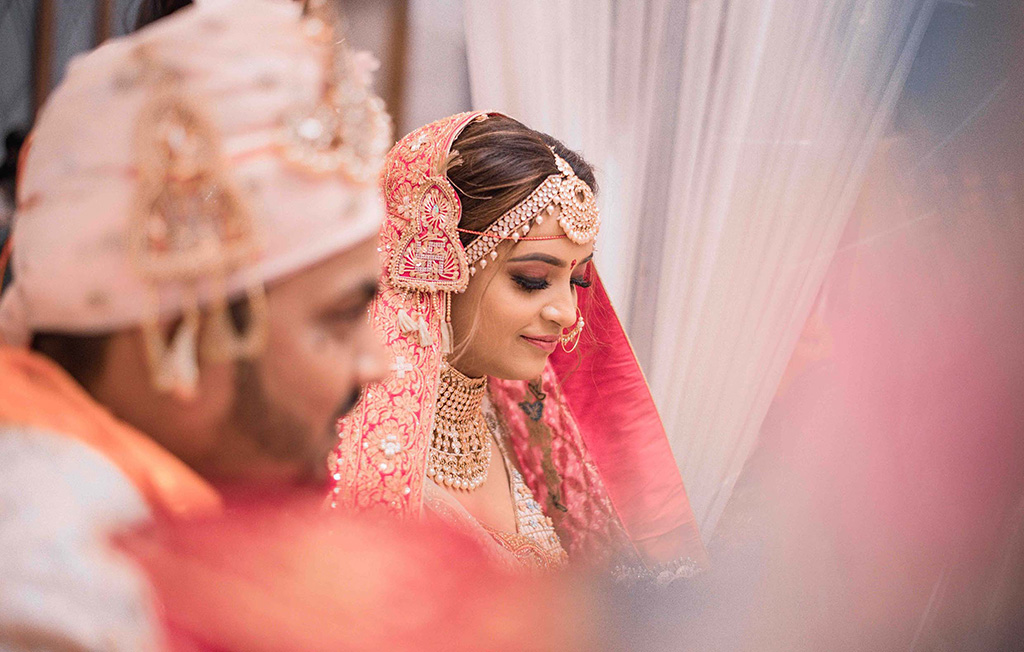Capturing Relationships in Wedding Photography: Telling the Story of Connection
wedding photography is more than capturing the couple’s big day; it is about preserving the bonds, emotions, and relationships that define their lives. From the intimate moments between the bride and groom to the heartfelt interactions with family and friends, documenting relationships is a core element of wedding photography. It’s these connections that make every wedding unique and memorable. This article explores how photographers can effectively capture relationships in wedding photography, emphasizing the techniques, challenges, and emotional resonance of this approach.
1. The Essence of Capturing Relationships
Weddings are a celebration of love and relationships, extending beyond the couple to include their families, friends, and communities.
A Story Beyond Two People
While the couple is the focal point, weddings are also about their shared history with others. Capturing these dynamics gives depth to the story of the day.
The Emotional Core
Photographing relationships highlights the love, joy, and support that surround the couple. It reflects the essence of why the day is significant, not just for the couple but for everyone involved.
A Timeless Narrative
These images serve as a lasting reminder of the connections and emotions that made the day special, creating a story that resonates for generations.
2. Key Relationships to Capture
A wedding brings together people from all walks of the couple’s life. Each relationship adds a unique dimension to the story.
The Couple
The bond between the bride and groom is central to wedding photography . Capturing their chemistry, shared glances, and intimate moments is vital.
Family Connections
Parent-child relationships, sibling dynamics, and generational bonds often shine during weddings. From a father’s pride to a grandmother’s joy, these moments are profoundly meaningful.
Friendships
Close friends play a significant role in weddings, whether as bridesmaids, groomsmen, or supportive guests. Photographing their laughter, toasts, and shared memories adds vibrancy to the collection.
Children and Elders
The innocence of children and the wisdom of elders create beautiful contrasts in wedding photography. Capturing their presence adds depth and diversity to the album.
The Community
Group photos and candid moments among guests reflect the larger community that has gathered to celebrate the couple’s love.
3. Techniques for Capturing Relationships
Photographers must employ various techniques to effectively document the connections and emotions present during a wedding.
Candid Moments
Candid photography is essential for capturing genuine interactions. Unposed moments, such as a shared laugh or a comforting embrace, often hold the most emotion.
Close-Up Shots
Focusing on facial expressions and small gestures—such as a hand squeeze or a tear being wiped away—adds intimacy to the images.
Environmental Context
Including the surroundings in shots can emphasize relationships. For instance, a wide-angle shot of the bride and her father walking down the aisle can show the emotional support of the moment.
Storytelling Composition
Photographers can use framing, leading lines, and other compositional techniques to draw attention to the connections between people in the image.
Emotional Anticipation
Understanding the flow of the day and anticipating key moments—like a groom’s reaction to the bride’s entrance—ensures that pivotal relationships are captured in real time.
4. The Role of Pre-Wedding Preparation
Effective wedding photography begins long before the wedding day. Preparation helps photographers understand the relationships they’ll document.
Consultation with the Couple
Meeting the couple beforehand allows photographers to learn about the important people in their lives. Knowing which relationships to prioritize ensures no key moments are missed.
Creating a Shot List
While documentary photography thrives on spontaneity, having a shot list of significant relationships ensures essential moments are captured.
Scouting the Venue
Understanding the layout of the venue helps photographers identify the best locations for capturing group interactions and intimate moments.
5. Challenges in Capturing Relationships
While rewarding, capturing relationships in wedding photography comes with its own set of challenges.
Unpredictable Dynamics
Relationships can be complex, and not all interactions are joyful. Photographers must navigate sensitive situations, such as estranged family members or strained dynamics, with tact.
Time Constraints
Weddings follow tight schedules, leaving limited time to focus on each relationship. Photographers must work efficiently to document as much as possible.
Balancing Candid and Posed Shots
Couples often desire a mix of candid moments and traditional group portraits. Balancing these demands requires skill and adaptability.
Emotional Sensitivity
Weddings are emotionally charged events, and photographers must approach their work with empathy and discretion to capture moments respectfully.
6. Emotional Resonance in Capturing Relationships
The true power of wedding photography lies in its ability to evoke emotion. Images that capture relationships hold deep meaning for the couple and their loved ones.
Creating Timeless Memories
Photos of cherished relationships—such as a father-daughter dance or a mother helping her child get ready—become treasured keepsakes.
Celebrating Community
Weddings are a rare gathering of loved ones. Capturing the energy and support of this community adds richness to the wedding album.
Honoring Absent Loved Ones
Photographs of meaningful relationships often take on greater significance in the future, especially when they include loved ones who are no longer present.

7. Incorporating Modern Trends
Modern wedding photography trends enhance the ability to capture relationships in creative and meaningful ways.
Documentary-Style Photography
This candid approach naturally emphasizes relationships by capturing unfiltered interactions and emotions.
Drone Photography
Overhead shots of the ceremony or reception showcase the larger community gathered to celebrate the couple.
Interactive Portraits
Incorporating fun, interactive poses among friends and family adds a dynamic element to the wedding album.
Video Integration
Highlight reels or short videos complement still photography by bringing relationships to life in motion.
8. Post-Processing and Presentation
The editing and presentation process plays a crucial role in enhancing the emotional impact of relationship-focused wedding photography.
Subtle Editing
Preserve the natural look and feel of the photos while enhancing colors, contrast, and lighting to highlight the emotions in each shot.
Story-Driven Sequencing
Organize the images in a way that tells a cohesive story of the couple’s relationships, from pre-ceremony preparations to the reception.
Personalized Albums
Customized albums or photo books allow couples to relive their relationships’ significance through beautifully curated images.
Digital Sharing
Create online galleries or slideshows to enable couples to share the story of their relationships with loved ones.
9. Why Capturing Relationships Matters
Photographing relationships in weddings goes beyond creating beautiful images; it captures the essence of what the day represents.
Celebrating Love
Weddings are a testament to love in its many forms—romantic, familial, and platonic. Photography captures these expressions for posterity.
Preserving Legacies
Images of relationships, particularly those spanning generations, become a part of the couple’s legacy and family history.
Reliving the Day
The emotional connections captured in photos allow couples to revisit and relive their wedding day’s most meaningful moments.
10. Capturing Genuine Emotions
At the core of emotional resonance is the authenticity of the feelings captured. The best wedding photographers excel at preserving the genuine emotions of the couple, their families, and their guests.
- Raw, Unscripted Moments: From the teary-eyed groom seeing his bride for the first time to the proud smile of a parent during the father-daughter dance, these spontaneous moments are what make wedding photography emotionally charged.
- Connection Over Perfection: While posed portraits are beautiful, the candid shots that capture fleeting emotions often resonate more deeply. A quick glance, a laugh, or even a tear can tell a story more profoundly than a perfectly composed frame.
- Sensitivity to Context: Every wedding has its unique dynamics, from cultural nuances to the couple’s personality. Photographers must be attuned to these subtleties to ensure they capture moments that reflect the true spirit of the day.
11. Storytelling Through Emotion
wedding photography is not just about individual images but about weaving a narrative that encapsulates the day’s emotions. Each photograph contributes to a larger story.
- The Emotional Arc: A wedding day often follows an emotional journey—from the anticipation and nerves of getting ready to the joy and celebration of the reception. Photographers document this arc, creating a narrative that reflects the day’s progression.
- Highlighting Relationships: Weddings are as much about the couple as they are about their relationships with family and friends. Capturing these connections—be it a bride sharing a moment with her siblings or a groom laughing with his childhood friends—adds depth to the story.
- Contextual Details: Emotional resonance isn’t limited to people. Details such as the bride’s bouquet, a handwritten letter, or the couple’s intertwined hands can evoke strong feelings and serve as visual metaphors for the day’s emotions.
12. The Role of the Photographer
The emotional resonance of wedding photos heavily depends on the photographer’s approach, sensitivity, and technical skill.
- Empathy and Intuition: A photographer’s ability to connect with the couple and their guests is crucial. By understanding their personalities and relationships, photographers can anticipate and capture meaningful moments.
- Discretion and Presence: Striking the right balance between being unobtrusive and present is key. Photographers must blend into the background while being ready to document emotional moments as they unfold.
- Technical Mastery: Capturing emotions effectively requires technical proficiency. Photographers need to understand lighting, composition, and timing to ensure the emotions are depicted vividly and authentically.
13. Emotional Impact on the Couple
wedding photography plays a pivotal role in how couples remember their wedding day. The emotional resonance of these images helps them relive the experience for years to come.
- Preserving Memories: Weddings are often a whirlwind of activity, and couples may not fully absorb every moment as it happens. Photographs serve as a time capsule, allowing them to revisit the emotions they felt.
- Creating Heirlooms: Emotionally resonant images become cherished family treasures, passed down through generations. They preserve not just the events of the day but the feelings and relationships that defined it.
- Strengthening Bonds: Revisiting wedding photography can deepen the couple’s connection. The images remind them of the love and commitment they shared on their special day.
14. Techniques for Enhancing Emotional Resonance
Photographers use various techniques to enhance the emotional impact of their images, ensuring they resonate deeply with the couple and viewers.
- Close-Up Shots: Intimate details, such as a tear on the bride’s cheek or the clasped hands of the couple, draw viewers into the emotion of the moment.
- Lighting and Mood: Natural light often creates a softer, more emotional atmosphere, while dramatic lighting can highlight the intensity of a moment.
- Dynamic Composition: Placing the subject within a larger context—such as a bride walking toward her groom against a sunset backdrop—can amplify the emotional impact.
- Capturing Reactions: Focusing on the reactions of guests, such as laughter during the vows or applause at the kiss, adds emotional depth and context to the narrative.
15. Emotional Resonance Beyond the Couple
While much of wedding photography focuses on the couple, emotionally resonant images often capture the broader emotional tapestry of the day.
- Family Moments: A father’s pride, a mother’s tears, or a grandparent’s quiet smile are powerful reminders of the love and support surrounding the couple.
- Guest Interactions: Capturing the joy and camaraderie among guests, from heartfelt speeches to dance floor celebrations, enriches the emotional narrative.
- Cultural and Spiritual Elements: For couples who incorporate religious or cultural traditions, documenting these moments can evoke deep emotional significance, reflecting the values and heritage that shape their union.

16. The Long-Term Impact of Emotional Resonance
The true value of emotionally resonant wedding photography often grows with time. As the years pass, these images serve as poignant reminders of love, connection, and shared history.
- Nostalgia and Reflection: Looking back at wedding photos years later allows couples to reflect on their journey and the relationships that have supported them.
- Building Legacy: Emotionally charged images become part of a family’s legacy, connecting future generations to their roots.
- Timeless Appeal: Trends in photography styles may change, but images that capture genuine emotion remain timeless, resonating across generations.
17. Conclusion
Capturing relationships in wedding photography is both an art and a responsibility. It requires a keen eye for emotion, a deep understanding of human connection, and technical expertise to bring those elements to life. By focusing on the bonds that make each wedding unique, photographers create images that resonate far beyond the wedding day, preserving the love, joy, and community that define the occasion. These photos become more than memories; they become cherished artifacts of the relationships that matter most.














